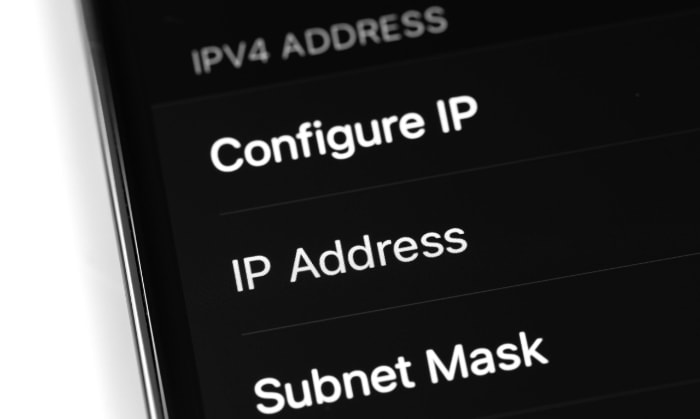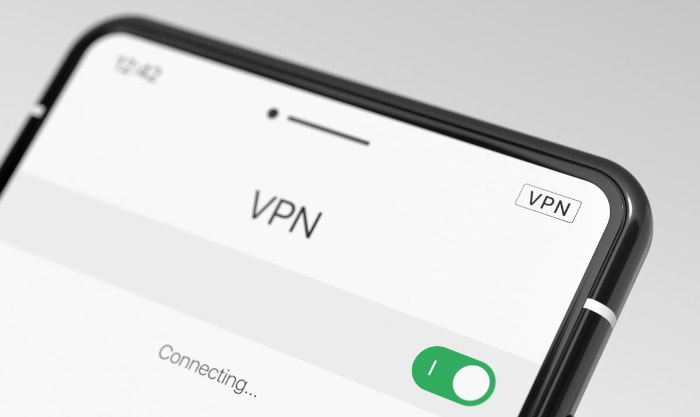What Can Someone Do With Your IP Address? The Real Risks

Your IP address is the public return address for all your online activity. This numeric label is essential for sending and receiving data, but it also reveals your approximate location and internet service provider to every website, server, and app you connect with.
While an IP address alone won't expose your personal identity or precise home location, it provides a critical starting point for malicious actors. It opens the door to network attacks, targeted scams, and invasive tracking.
An exposed IP expands your attack surface, giving bad actors the information they need to probe for weaknesses, launch disruptions, or craft more convincing phishing attempts. Recognizing the real risks is the first step toward securing your connection.
What an IP Reveals (and Doesn’t)
An IP address provides a surprising amount of context about your connection, yet its power to identify you is often overstated. It acts as a digital signpost, pointing to your general area and network, but it does not lead directly to your doorstep.
Separating fact from fiction is crucial to accurately assess the privacy implications of a public IP.
What It Reveals
Your IP address communicates several key details to any server it connects with. Most significantly, it exposes your approximate geolocation, typically narrowed down to the city or metropolitan region you are in.
It also identifies your Internet Service Provider (ISP), such as Comcast, Verizon, or a local provider. This network context is valuable for services that use it to implement access controls, like blocking content based on your country, or for advertisers who use your location to deliver targeted marketing.
What It Doesn’t
By itself, an IP address is not a piece of personally identifiable information. It does not reveal your name, precise home address, or phone number.
Gaining direct access to your personal accounts or devices requires much more than just knowing your IP. An attacker would need to exploit a separate security weakness, steal your credentials through deception, or find additional leaked data to connect your IP address to your identity.
Your IP is a piece of the puzzle, not the full solution for an intruder.
Why This Matters
The real risk emerges when IP-derived signals are combined with other identifiers collected across the web. Data brokers and advertisers can correlate your IP address with browsing habits, social media profiles, and information from data breaches.
This process of data aggregation significantly increases the risk of reidentification, linking your anonymous online activities back to you as an individual. Such a connection allows for the creation of highly detailed user profiles used for sophisticated ad targeting, price discrimination, or other forms of profiling.
Realistic Threat Scenarios

Once exposed, an IP address can be used in several ways, ranging from disruptive annoyances to the initial steps of a more coordinated attack. While an IP alone is not a skeleton key to your digital life, it provides a tangible target for specific hostile actions.
The most common threats leverage the IP as a public coordinate for your network connection.
Disruption Attacks
One of the most direct threats is having your internet connection intentionally disrupted. Malicious actors can use your IP address to launch a Distributed Denial of Service (DDoS) attack, overwhelming your network with a flood of junk traffic.
The result is a connection that becomes slow, unresponsive, or completely unusable. Such attacks are frequently seen in competitive online gaming, where a player might knock an opponent offline to gain an advantage, or in harassment campaigns targeting live streamers to interrupt their broadcasts.
Network Probing
An exposed IP address gives an attacker a target for reconnaissance. They can perform port scanning and service enumeration, which is like methodically checking every door and window of a house to find one that is unlocked.
The goal is to discover exposed services, network misconfigurations, or unpatched devices connected to the internet. Finding an open port on your router or a vulnerable smart home device could provide an entry point for a more serious compromise of your entire home network.
Profiling and Restrictions
Not all threats are overtly hostile; some are commercial or administrative. Advertisers use your IP to infer your location for precise ad targeting.
Streaming services enforce geoblocking, preventing you from accessing content not licensed for your region. Some online retailers engage in price discrimination, showing different prices to users based on their location.
Furthermore, your IP can develop a reputation, and if it becomes associated with spam or malicious activity, it can lead to account bans or being blacklisted from certain websites and services.
Social Engineering and Misuse Paths

Beyond direct technical attacks, an exposed IP address creates opportunities for deception and can lead to you being held responsible for actions you did not take. In these scenarios, the IP address is not the weapon itself but a piece of information that enables more sophisticated manipulation or misattribution of malicious activity.
Targeted Phishing and ISP Spoofing
Knowing a person’s IP address also reveals their Internet Service Provider. An attacker can leverage this information to craft highly convincing phishing attacks.
For instance, a scammer could send you an email that appears to be a legitimate security alert or billing notice from your specific provider, like Xfinity or Spectrum. Because the message correctly identifies your ISP, it seems more credible, increasing the likelihood that you might click a malicious link or provide login credentials.
This context turns a generic scam into a targeted and more effective lure.
Abuse Traced to the Victim
If your computer or another device on your network is compromised with malware, it can be used for illicit purposes without your knowledge. Attackers can hijack your connection to send spam, participate in botnet attacks, or conduct other illegal activities.
From the perspective of the internet, all of this malicious traffic originates from your IP address. As a result, your IP could be blacklisted by websites and online services, or your ISP could launch an investigation into the abuse, potentially leading to a suspension of your service.
You become the prime suspect for activity orchestrated by someone else.
Liability Exposure
The person who pays the internet bill is typically held responsible for all traffic associated with their IP address. If anyone, including a guest or an intruder who has compromised your Wi-Fi, uses your network to illegally download copyrighted content, the resulting copyright infringement notices will be sent to you.
These formal inquiries from copyright holders or law firms can demand payment for damages or threaten legal action. Even if you were not directly responsible for the download, the activity is tied to your account through your IP, placing the burden of proof on you.
How IPs Are Exposed

Your IP address is not a closely guarded secret; it is shared constantly as a fundamental part of how the internet works. Exposure happens through routine online activities, deliberate data collection by third parties, and sometimes through simple oversights.
These common exposure points are often unavoidable, but knowing where they occur is essential to managing your digital footprint.
Passive Leakage
The most frequent way your IP is exposed is through passive leakage during normal internet use. Every website you visit, advertisement you load, and email you send leaves a trace.
Web servers log the IP address of every visitor for analytics and security purposes. Online advertisers and trackers record your IP to help build profiles and target content.
Even sending an email can reveal your IP, as it is often included in the message headers. Activities like peer-to-peer file sharing and online gaming inherently expose your IP address to other users and servers in the network to facilitate direct connections.
Active Collection
Beyond passive leakage, attackers can actively work to collect your IP address. Social engineering is a common technique, where someone might trick you into clicking a link that leads to a server they control, logging your IP upon connection.
Malware installed on your device can also be programmed to harvest your public IP address and report it back to a command-and-control server. In some cases, legitimate tools like website analytics are misused to aggressively track and correlate IPs with specific user identities and online behavior, crossing a line from general metrics to targeted surveillance.
Public Footprints
You can also inadvertently expose your IP address through your public online activities. Posting on public forums or in comment sections leaves a record of your IP that is visible to site administrators.
Live streamers can sometimes reveal their address through the streaming platform or associated applications if not properly secured. Furthermore, misconfigured services on your home network, such as a personal cloud storage device or a security camera that is incorrectly exposed to the open internet, can broadcast their routable IP address to anyone scanning for open devices.
Protect and Respond

Since completely hiding your IP address is impractical, the focus should shift to managing its exposure and securing your network against related threats. A combination of proactive shielding, network hygiene, and a clear plan for when things go wrong can significantly reduce the risks associated with IP exposure.
Masking and Segmentation
The most effective way to shield your public IP address is to use a service that masks it. A Virtual Private Network (VPN) or a secure proxy routes your internet traffic through an intermediary server.
As a result, websites and services you connect to see the IP address of the VPN server, not your home network's address. This technique effectively hides your true geolocation and breaks the link between your activity and your ISP.
For some users, a dedicated IP address, an option offered by providers like NordVPN, offers a useful middle ground. It provides a stable, unshared address that helps maintain a consistent reputation, which can be beneficial for remote work or avoiding blacklists associated with shared VPN IPs.
Hardening the Edge
Protecting your network starts at its perimeter, which is typically your router. This practice, known as hardening the edge, involves securing the main gateway to your internet connection.
Regularly update your router’s firmware to ensure it has the latest security patches against known vulnerabilities. You should also close any unnecessary open ports on your router, as each one represents a potential entry point for attackers.
Disabling risky features like Universal Plug and Play (UPnP), which allows devices to automatically open ports, is a critical step. Finally, configure and enforce your router's firewall rules to strictly control what traffic is allowed in and out of your network.
Immediate Response Playbook
If you believe your IP is being actively targeted, there are immediate steps you can take. For most home internet connections with a dynamic IP, simply rebooting your router can be enough to get a new IP address from your provider.
If a reboot does not work, you can contact your ISP directly and request a new IP assignment. After changing your IP, monitor your accounts and network for any signs of continued targeting, such as new or unusual phishing emails.
It is vital to address any suspicious communication decisively by deleting it and not engaging with the sender, as attackers may follow up with social engineering attempts.
Conclusion
The primary risks of a public IP address range from disruptive DDoS attacks to being the target of sophisticated phishing scams. An attacker can use it to scan your network for vulnerabilities, while data brokers use it for invasive profiling.
Despite these threats, an IP address alone is not a direct line to your identity; it provides a general location and network context, not your name or street address. By implementing layered controls, the danger becomes manageable.
Proactively masking your IP with a VPN, hardening your router and devices, and knowing how to respond if targeted are the essential steps. Together, these mitigations reduce a constant exposure to a controlled and minimal risk.


